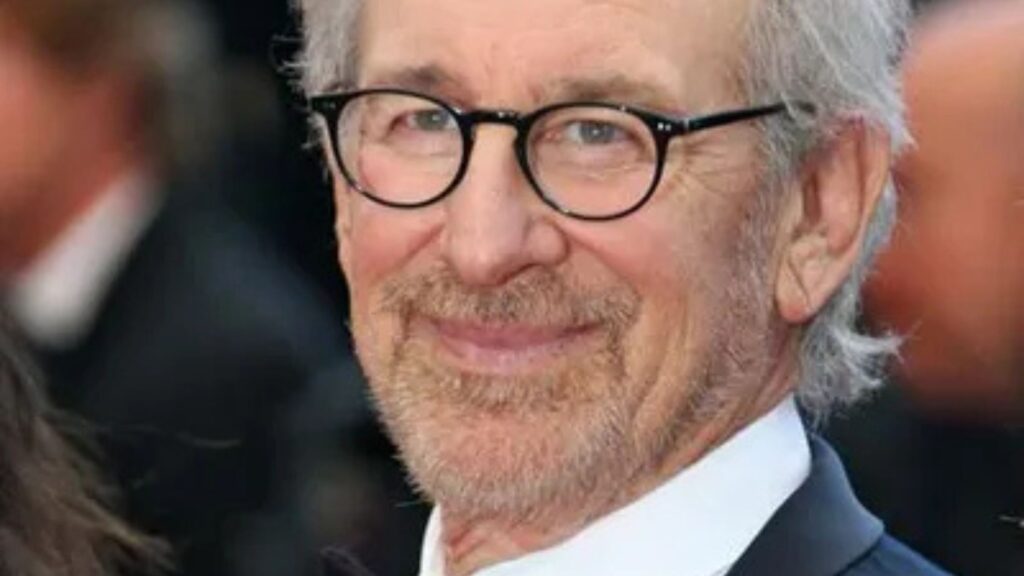
Steven Spielberg is a name that resonates with nearly every film enthusiast, from casual moviegoers to hardcore cinephiles. As one of the most influential filmmakers in the history of cinema, Steven Spielberg has had a profound impact on the film industry, creating iconic films that have shaped popular culture and revolutionized filmmaking. Over the course of his career, Spielberg has directed, produced, and written numerous films across various genres, earning critical acclaim, numerous awards, and the love of audiences worldwide.
From thrilling adventure films to powerful dramas, Spielberg’s work has not only entertained but also inspired and moved millions. In this article, we will take an in-depth look at the life, career, and legacy of Steven Spielberg, exploring his beginnings in Hollywood, his most iconic films, and his lasting influence on the world of cinema.
Table of Contents
Early Life and Career Beginnings
Steven Allan Spielberg was born on December 18, 1946, in Cincinnati, Ohio, to Leah and Arnold Spielberg. Raised in a Jewish family, Spielberg’s passion for film began at an early age. He was fascinated by movies and started making short films using a camera he borrowed from a family friend. By the age of 13, Spielberg was already creating short films and even won a prize for his 40-minute film Firelight, a science fiction piece that hinted at the storytelling genius he would later become known for.
Spielberg’s love for cinema continued to grow, and after graduating from Saratoga High School, he attended California State University, Long Beach. There, he directed several student films, including Amblin’, a short film that would go on to catch the attention of major Hollywood producers. In 1969, Spielberg dropped out of college to pursue a career in the film industry. His first big break came when he was hired as a television director for shows like Night Gallery (1971) and Columbo (1971). His work on these shows laid the foundation for his career as a director in the larger film industry.
Breakthrough in Hollywood: Jaws and the Birth of Blockbusters
Spielberg’s first major film success came in 1975 with Jaws, a suspenseful thriller about a great white shark terrorizing a small beach town. The film was a massive commercial success and became the first-ever summer blockbuster, paving the way for the modern film industry. Not only did Jaws gross over $470 million worldwide, but it also set new standards in terms of special effects, sound design, and marketing. Spielberg’s ability to build suspense and create memorable characters helped elevate Jaws to an iconic status, and it remains one of the most influential films of all time.
Following the success of Jaws, Spielberg became one of the most sought-after directors in Hollywood. In 1977, he released Close Encounters of the Third Kind, a science fiction film that further solidified his reputation as a master storyteller. The film’s innovative special effects and exploration of humanity’s encounter with extraterrestrial life made it another landmark in Spielberg’s career.
Expanding into New Genres
By the early 1980s, Spielberg had established himself as a filmmaker capable of handling various genres with ease. One of his most iconic works from this period was Raiders of the Lost Ark (1981), a thrilling action-adventure film that introduced audiences to the now-legendary character of Indiana Jones, played by Harrison Ford. The film’s success led to multiple sequels, and the Indiana Jones franchise became one of the most beloved action series in film history. Spielberg’s collaboration with fellow filmmaker George Lucas on Raiders marked the beginning of a long-running creative partnership.
In addition to action-adventure films, Spielberg’s talent for directing heartfelt dramas was on full display with E.T. the Extra-Terrestrial (1982). This family-friendly film about a young boy’s friendship with an alien captured the hearts of millions and became one of the highest-grossing films of all time. E.T. also received widespread critical acclaim, earning multiple Academy Award nominations and becoming a cultural touchstone for generations.
Mastering Drama: Schindler’s List and Saving Private Ryan
While Spielberg was known for his mastery of adventure films and blockbusters, he demonstrated his versatility by delving into powerful, historical dramas. One of the most significant films of his career came in 1993 with Schindler’s List, a harrowing portrayal of the Holocaust. Based on the true story of Oskar Schindler, a German businessman who saved the lives of over 1,000 Jewish refugees, the film was a departure from Spielberg’s previous work but showcased his ability to handle serious, emotional material with grace and sensitivity.
Schindler’s List was both a critical and commercial success, winning seven Academy Awards, including Best Picture, Best Director, and Best Adapted Screenplay. The film became a defining moment in Spielberg’s career, proving his ability to create meaningful, thought-provoking cinema. It also cemented his place in Hollywood as a director who could work across genres, from thrillers to deeply moving historical dramas.
Another iconic film from this era was Saving Private Ryan (1998), a World War II epic that depicted the brutal realities of war. The film, known for its harrowing opening D-Day sequence, received widespread acclaim for its realism and emotional depth. Saving Private Ryan won five Academy Awards, including Best Director for Spielberg, and is considered one of the greatest war films ever made.
Spielberg as a Producer: DreamWorks and Beyond
In addition to his directorial work, Spielberg has been a prolific producer. In 1984, he co-founded the film production company Amblin Entertainment, which became known for producing a wide range of successful films, including Back to the Future (1985) and Gremlins (1984). However, in 1994, Spielberg took another major step by co-founding DreamWorks SKG, a new production company with Jeffrey Katzenberg and David Geffen. DreamWorks quickly became a powerhouse in the film industry, producing both critical and commercial hits, such as Saving Private Ryan, Gladiator (2000), and Shrek (2001).
Through DreamWorks and his other ventures, Spielberg has helped launch the careers of numerous filmmakers and has remained an influential figure in Hollywood for decades. His ability to spot talent and foster creative collaboration has played a key role in shaping the future of cinema.
Spielberg’s Impact on Modern Cinema
Over the years, Steven Spielberg has continued to push the boundaries of filmmaking, experimenting with new technology and telling stories that resonate with audiences worldwide. His ability to blend cutting-edge special effects with deeply human stories has made him a master of both spectacle and emotional storytelling. In recent years, Spielberg has continued to direct and produce, with notable projects including Bridge of Spies (2015), The Post (2017), and Ready Player One (2018), all of which received critical acclaim.
Spielberg’s influence on modern cinema is immeasurable. From his use of groundbreaking special effects to his ability to craft compelling narratives, Spielberg has set a standard for filmmakers to follow. His career has inspired generations of directors, writers, and producers to dream big and to never shy away from exploring complex themes through the lens of film.
Legacy and Recognition
Steven Spielberg has received numerous awards throughout his illustrious career, including multiple Academy Awards for Best Director. He has also been recognized by the American Film Institute (AFI) with the AFI Life Achievement Award and has been named one of the greatest directors of all time by various film institutions. Spielberg’s legacy is not just defined by his accolades, but by his ability to shape the course of cinema itself.
FAQs About Steven Spielberg
1. What is Steven Spielberg’s most famous film?
Steven Spielberg is known for many iconic films, but some of his most famous works include Jaws (1975), E.T. the Extra-Terrestrial (1982), Indiana Jones (1981), and Schindler’s List (1993).
2. Has Steven Spielberg won an Academy Award?
Yes, Steven Spielberg has won multiple Academy Awards, including Best Director for Schindler’s List (1993) and Saving Private Ryan (1998).
3. What was Steven Spielberg’s first major film?
Spielberg’s first major film was Jaws (1975), which became a groundbreaking success and is considered the first summer blockbuster.
4. What is DreamWorks SKG?
DreamWorks SKG is a film production company co-founded by Steven Spielberg, Jeffrey Katzenberg, and David Geffen in 1994. It has produced a number of critically acclaimed films, such as Saving Private Ryan and Gladiator.
5. What are some of Steven Spielberg’s recent films?
Some of Spielberg’s more recent films include Bridge of Spies (2015), The Post (2017), and Ready Player One (2018).
6. What makes Steven Spielberg such an influential filmmaker?
Steven Spielberg is considered one of the greatest filmmakers due to his ability to create both epic spectacles and deeply emotional stories, his pioneering work in special effects, and his long-lasting impact on modern cinema.
7. How has Spielberg shaped the film industry?
Spielberg revolutionized modern filmmaking with Jaws, transforming the way movies were marketed and distributed. He also popularized special effects-driven films and created iconic characters like Indiana Jones and E.T., forever changing the landscape of cinema.
Steven Spielberg’s contributions to the film industry are immeasurable, from his iconic films to his role as a producer and mentor. He remains a true visionary in the world of filmmaking and continues to influence new generations of artists and filmmakers. His legacy will undoubtedly continue to shape cinema for years to come.






